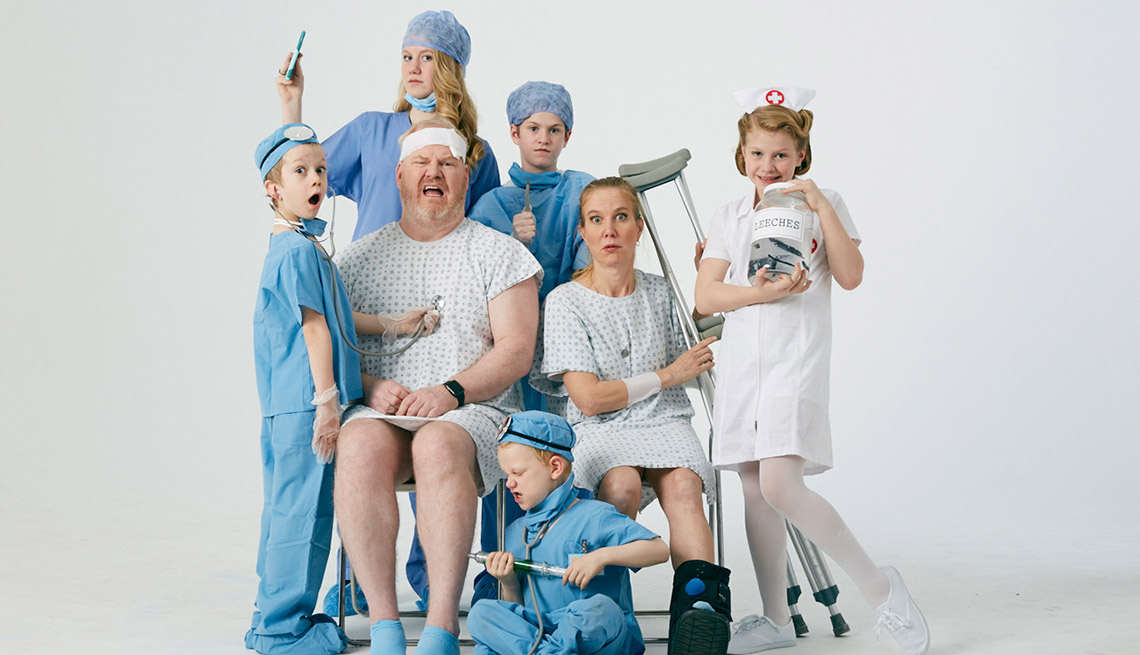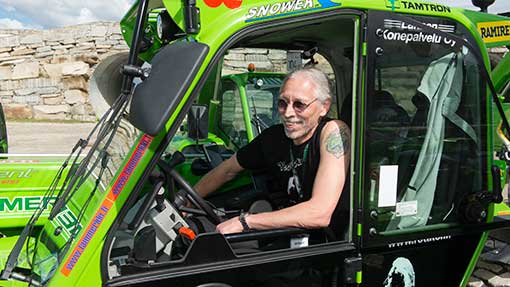
- Select a language for the TTS:
- UK English Female
- UK English Male
- US English Female
- US English Male
- Australian Female
- Australian Male
- Language selected: (auto detect) - EN
Play all audios:
In any crisis, the unimportant things tend to fall away. During her hospitalization and complicated recovery from the removal of the benign tumor, Jeannie was incapable of running the
household like a well-oiled machine. Watching Jim, her extended and immediate family and her friends handle it all made her realize that her priorities were out of whack. “Maybe the machine
didn't need that much oil to work,” she concludes. By doing everything for everyone, she had taken the power away from her family to do for themselves, she says. As she healed, Jeannie
resolved to make a change, while simultaneously providing the scaffolding for her five children, the eldest of whom was becoming a teenager. “We were heading into the age,” Jeannie jokes,
“that moms need to constantly smell their breath for crack.” Jeannie's constant whirl of doing was self-imposed. “My execution of the never-ending to-do list was not because Jim was
dumping all the work on me, or the kids were lazy or no one else could do it. It gave me a false sense of fulfillment to be needed,” she explains. "Removing the mama bear from the
caregiver role helped everyone around me, especially Jim, discover their innermost power and figure out how to make their own damned porridge,” says Jeannie. “Aside from the hospital and
recovery part, the brain tumor was literally the best thing that ever happened to me." The experience also rearranged her husband's priorities. “Jim would tell me over and over
that the only thing that mattered was that I get better,” Jeannie says. But she had an additional worry: There was so much pressure on his shoulders that he was “decidedly not funny.” She
felt guilty, worrying that her brain tumor and Jim's need to take on more might permanently change him in negative ways. "Jim loves his career, and part of the reason our marriage
and family works is that he's able to stand on a stage and make people laugh. That is literally his therapy,” Jeannie says. Jim's eyes were opened to the quiet army of people who
minister to loved ones every day. “I was a hugely imperfect caregiver,” he says. “It's not an easy role, social secretary, maid, cook, nurse … but honestly it was a privilege. It made
me realize how many people are toiling quietly and how few share their absolute fears or how they stayed sane. I worried constantly about how she would come out the other end, if she ever
came back."






